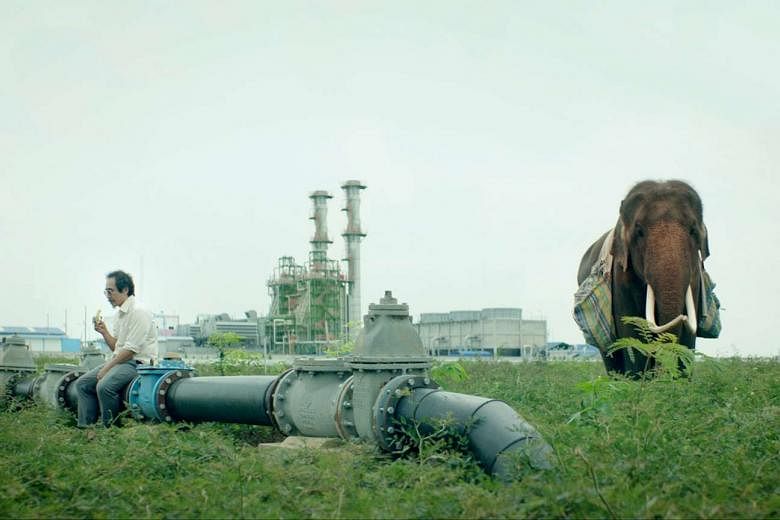More than any other factor, perhaps, writing makes a movie. In Singapore, we know this principle well because it is so often broken.
Producers here have created films in every genre, from horror to indie drama, that look fantastic - until the characters say or do anything.
With a sinking feeling, you realise that every one of its problems could have been spotted on the page.
It's the same issues over and over: using dialogue as exposition or to state the obvious; inconsistent character motivations; comedic or dramatic bits that exist for their own sake, adding nothing to the plot or character; story threads that happen and end abruptly or never go anywhere at all; and my pet peeve - characters shouting at one another as substitute for high drama.
Yes, we have plenty of image- driven auteurs, the men and women who are visual poets, primitive expressionists, whimsical portraitists.
But what we don't have many of are storytellers. This is why Kirsten Tan's Pop Aye, which opens tomorrow in cinemas, is so exciting.
The bittersweet drama about a middle-aged Thai man searching for his lost youth gets it right.
It gets it right technically: Tan's characters speak only when they have to and what they have to say is interesting. There is one strong story arc that continues over the course of the movie. Everything that happens on screen is motivated by character.
Pop Aye also gets it right emotionally. Tan writes Thana (played with wonderful understatement by music producer-turned-actor Thaneth Warakulnukroh) as a fool on a foolish errand, driven by a desire he cannot fathom to walk an elephant across a scorching country.
Writer-director Tan trusts that the audience will get on Thana's side without doing that typically Hollywood act of setting up situations where he will be revealed as a saint or a hero.
Thana is a nice guy, but he remains selfish and delusional throughout.
Tan took close to three years to polish the script, with input from Anthony Chen, Pop Aye's executive producer and also writer-director of the family drama Ilo Ilo (2013), winner of the Camera d'Or at the Cannes Film Festival and Best Feature Film at the Golden Horse Awards.
The length of time it took is one ingredient in the success of the writing. Another is collaboration. As Tan herself pointed out in an interview with The Straits Times last week - and she must be applauded for her mature point of view - she says she appreciated Chen's distance from the story and therefore his ability to not be precious about it.
From what I know of Chen, he is apt to be an editor with a sharp pair of scissors. He says he badgered Tan with this question: Is this thing that is happening driven by character?
Ilo Ilo might have been a film in a completely different genre - it is a social realist family drama, compared with Pop Aye's magical realism-tinged road movie - but that question is at the core of every good screenplay and it's a reason Pop Aye's script won a prize for writing at the recent Sundance Film Festival.
It is romantic to think that good scripts pop out of the ether, born complete from the fevered brow of a genius. It's a nice idea, but the truth is the best screenplays are tinkered with for years, with every detail sweated over. In writing parlance, darlings are killed.
Chen believes that this system should be the norm in Singapore, a place where six months is considered a long time to tweak a screenplay.
Are our film-makers ready?


